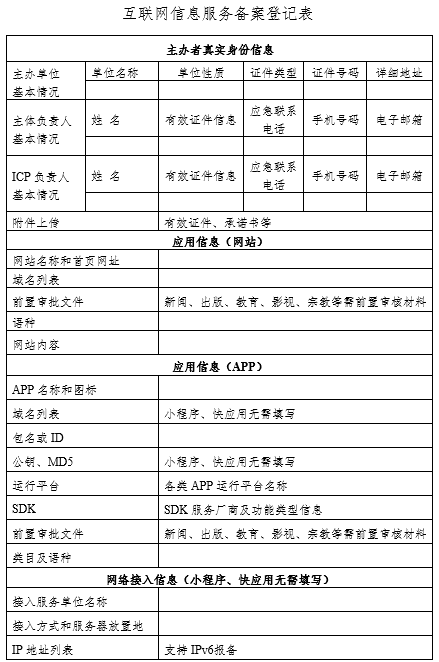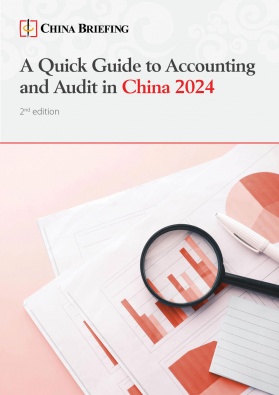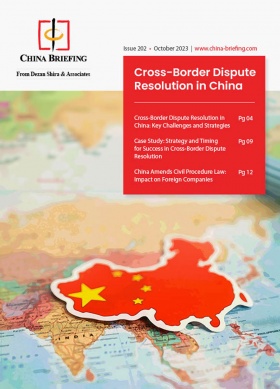All Apps and Mini Programs to be Registered by End of March 2024 – A Quick Guide
New rules from China’s industry regulator released over the summer require all mobile applications and so-called mini programs to undergo ICP registration from September 1, 2023. All existing applications and mini programs have until the end of March 2024 to complete registration, and programs found not to have registered after this date will be removed. With the deadline approaching, we have provided a quick guide explaining the new requirements.
The Ministry of Industry and Information Technology (MIIT) announced in July 2023, that all mobile applications (“apps”) and so-called in-app “mini programs” must be registered with the MIIT before they can be launched. The registration requirement is meant to help the MIIT crack down on telecommunications and internet fraud, according to the announcement.
The new requirements apply to all new apps and mini programs from September 1, 2023, onward, while all existing apps and mini programs will have until March 31, 2024, to register.
A mini program, sometimes called a “mini app” or “smart mini program”, is a type of light application that is built into an existing app, usually a “super app” such as WeChat, Alipay, or Baidu App. Mini programs are popular with marketers and small businesses in particular as they are easier and more cost-effective to establish than a standalone mobile application provided in an app store, and can benefit from the traffic generated by the existing user base of the super app.
This type of registration, called ICP registration, has already been required for websites in China since 2000.
For the sake of brevity, we will refer to apps and mini programs collectively as “apps” in this article, unless otherwise noted. The entities responsible for the apps are also collectively referred to as “app operators”.
Procedures for registering apps
App operators must fill out an “Internet Information Service Registration Form” (“Registration Form”) and a commitment letter by logging on to the “National Internet Basic Resource Management System” (also known as the ICP/IP Address/Domain Name Information Registration Management System, hereinafter referred to as the “registration system”). The telecommunications authorities (电信主管部门) may adjust the contents of the “Registration Form” and relevant commitment letters based on the actual situation from time to time.
The form can also be downloaded from the announcement for reference (see attachment 附件).
The information on the registration form includes (but is not limited to):
- Basic information of the app operator, such as the company name, properties, address, and company certificate type (such as business license) and number;
- Basic information of the representative of the app operator, including, identity card information, contact numbers, and email address;
- Basic information on the ICP representative, such as name, identity card information, contact numbers, and email address;
- Information on the app, such as the app name, domain name list, package name or ID, operating platform, SDK, and so on; and
- Information on the ISP, such as ISP name, access method and server location, and IP address list.
Internet Information Services Registration Form
In addition, the operators of apps that provide services such as news, publishing, education, film and television, religion, and so on are also required to submit documents reviewed and approved by relevant competent authorities (documents proving they are authorized to engage in these fields, such as industrial qualifications or approvals) to the provincial communications bureau where they are domiciled.
Those who have not completed the filing procedures cannot offer app services.
The app internet service providers (ISPs) and distribution platforms (such as app stores) are required to verify the user identities, network resources, and other information of organizations or individuals planning to engage in app services. The ISPs and distribution platforms are not permitted to perform any tasks on their behalf when they know or ought to know that the information is inaccurate.
The app operators need to register with the provincial-level communications bureau (通信管理局) where they are domiciled. To make the registration process easier for the app operators, it is the responsibility of the ISP or distribution platform to submit an online application to the communications bureau (a department under the MIIT) in which the app operator is domiciled through the registration system. This means that app operators do not need to go to the communications bureau to apply.
As mentioned, this type of registration has already been required for websites in China since the year 2000. The information needed for registering an app is the same as for website registration. This means that entities that have previously completed website registration procedures do not need to fill in the information on the subject identity in the registration form, and only need to supplement the app-related information.
Receiving the registration results and post-registration obligations
If the materials are complete and accurate, the provincial-level communication administration will complete the registration and publicly disclose the registration information through the registration system within 20 working days of receiving the materials. They will also issue a registration number and notify the applicant via text message or email. The app operator can also check the status of the application through the registration system website. If the materials are incomplete or inaccurate, the provincial communications bureau will not file the application and provide an explanation for the rejection of the application.
App operators are required to prominently display the registration number in the app (such as in the app’s settings or introduction), and below it, display the link to the registration system website so that the public can look up and verify the registration.
In addition, the distribution platform must prominently display the registration number information of the app and submit relevant information to the telecommunications authorities.
ISPs, distribution platforms, and device manufacturers are prohibited from providing network access to, distributing, or pre-installing apps that have not completed the registration procedures.
Registering mini programs on WeChat
Per the new requirements, the ISPs, app distribution platforms, and super-apps that host mini programs are required to assist the app operators in registering the apps. To this end, several platforms have already provided guidelines and channels for the app registration procedures, including Baidu App and Alipay.
The messenger super-app WeChat, one of the largest hosts of mini programs in China, has also set up a channel for registering mini programs on the platform and developed a corresponding guide. We use this guide as an example of the procedures to register a mini program.
According to the guide, the following materials and procedures need to be submitted:
- The operator’s certificate (business license);
- Color scan or photo of the ID card of the person in charge (with at least one-month validity);
- Color scan or photo of the ID card of the person in charge of the mini program (with at least one-month validity);
- Facial verification by the person in charge of the mini program; and
- Any other supplementary materials required by the provincial communications bureaus.
Mini program operators can register by logging in to the mini program management website, filling in the registration material, and uploading the required materials.
After submitting the registration information, WeChat will complete an initial review within one to two working days and notify the applicant of the result. The guide notes that the applicant should keep their phone lines open in case the platform needs to contact them to verify the registration information.
The next step after the initial review has been completed is text message verification. The applicant will receive a text verification from the number 12381. The applicant must then log in to the MIIT’s registration system to complete the text verification within 24 hours of receiving the message. Once the text message verification has been completed, the registration application will enter the communications authorities review process.
The communications authorities will then complete the review within 20 days, after which the registration number will be issued.
Consequences for non-compliance
As mentioned, apps that existed before these new requirements have until March 31, 2024, to complete the registration. Between April and July 2024, the MIIT will inspect the apps that have been given internet access, distributed, and pre-installed by ISPs, distribution platforms, and device manufacturers. Any apps that have not completed the registration procedures and are engaged in illegal activities will be dealt with according to the law.
From July 2024 onward, the provincial-level communication authorities will regularly organize for the ISPs, distribution platforms, and device manufacturers to assess the accuracy of apps’ registration information.
Apps that have not been registered cannot be provided internet access by ISPs, hosted by distribution platforms, or pre-installed on smart devices by device manufacturers.
It may be difficult for app operators who are based overseas to navigate the registration procedures by themselves as the required materials and registration system are all in Chinese. If you need help with the app registration procedures, don’t hesitate to contact our advisors at Dezan Shira & Associates by emailing china@dezshira.com.
About Us
China Briefing is written and produced by Dezan Shira & Associates. The practice assists foreign investors into China and has done so since 1992 through offices in Beijing, Tianjin, Dalian, Qingdao, Shanghai, Hangzhou, Ningbo, Suzhou, Guangzhou, Dongguan, Zhongshan, Shenzhen, and Hong Kong. Please contact the firm for assistance in China at china@dezshira.com.
Dezan Shira & Associates has offices in Vietnam, Indonesia, Singapore, United States, Germany, Italy, India, Dubai (UAE), and Russia, in addition to our trade research facilities along the Belt & Road Initiative. We also have partner firms assisting foreign investors in The Philippines, Malaysia, Thailand, Bangladesh.
- Previous Article El sistema de crédito social chino: Lo que las empresas deben saber
- Next Article Chinas Kosmetik- und Körperpflegemarkt: Wichtige Trends und Geschäftsaussichten





























